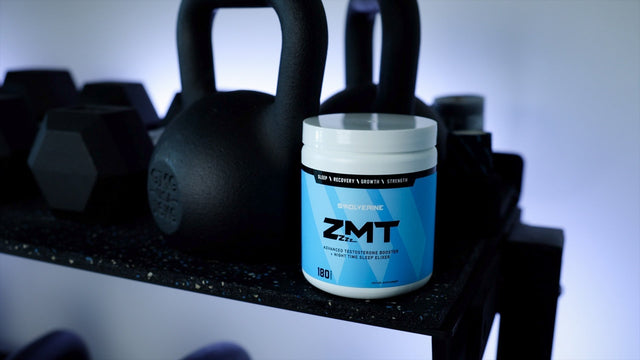Introducing the ultimate showdown: peptides vs steroids. In the world of fitness and performance enhancement, both peptides and steroids have gained immense popularity. But which one is safer and more effective? Let's unveil the truths and benefits to help you make an informed decision.
Peptides are natural compounds consisting of amino acids that play a crucial role in various bodily functions. They can enhance muscle growth, improve recovery, and boost overall performance. On the other hand, steroids are synthetic hormones that mimic the effects of testosterone, leading to increased muscle mass and strength.
But here's the catch: while steroids can provide rapid results, they also come with a laundry list of side effects. Peptides, on the other hand, have fewer adverse effects and offer a more targeted approach to achieving your fitness goals.
In this comprehensive guide, we will delve deep into the differences between peptides and steroids, exploring their mechanisms of action, benefits, potential side effects, legal status, and more. So, whether you're a seasoned athlete or just starting your fitness journey, this guide will equip you with the knowledge you need to make an informed choice.
Understanding the Differences Between Peptides and Steroids
Overview
Peptides and steroids are two widely discussed substances in the worlds of fitness, performance enhancement, and bodybuilding. While both are known to enhance muscle growth, recovery, and physical performance, they function through very different biological mechanisms and carry distinct risks, benefits, and legal considerations.
Understanding how these compounds work—and how they differ—is crucial for anyone considering their use for aesthetic improvement, athletic performance, or medical purposes.
What Are Peptides?
Peptides are short chains of amino acids, typically consisting of 2–50 amino acids linked by peptide bonds. Many peptides are naturally produced in the body and act as signaling molecules involved in:
In the context of fitness and recovery, synthetic peptides like growth hormone-releasing peptides (GHRPs) or growth hormone secretagogues (GHSs) are used to stimulate endogenous growth hormone production. This leads to:
-
Improved muscle recovery
-
Increased fat metabolism
-
Enhanced collagen production and joint health
-
Better sleep and repair (Svensson et al., 1998, Journal of Clinical Endocrinology & Metabolism)
Common performance-enhancing peptides include:
-
Ipamorelin
-
CJC-1295
-
BPC-157
-
TB-500
These compounds tend to have fewer side effects compared to anabolic steroids, although clinical data is still limited for many.
What Are Steroids?
Anabolic steroids are synthetic derivatives of testosterone, the primary male sex hormone. Steroids function by binding to androgen receptors in muscle and bone tissue, which activates gene expression to:
-
Increase protein synthesis
-
Boost nitrogen retention
-
Promote muscle hypertrophy
-
Enhance strength and power output
Steroids like testosterone enanthate, trenbolone, and Dianabol (methandrostenolone) have been widely used in bodybuilding and sports, though they come with well-documented health risks.
While steroids are highly effective at building lean muscle mass rapidly, they can also cause side effects such as:
-
Gynecomastia
-
Hair loss or acne
-
Increased risk of heart disease or stroke
-
Suppression of natural testosterone production
-
Liver and kidney toxicity in oral compounds (Pope et al., 2014, Endocrine Reviews)
Legal and Regulatory Status
The legal classification of peptides and steroids varies widely by country and region:
-
Peptides: Many are approved for medical use (e.g., for growth hormone deficiency, wound healing), and some can be obtained via prescription. However, others are unregulated or research-only and not approved for human consumption.
-
Steroids: Classified as Schedule III controlled substances in the U.S. under the Anabolic Steroid Control Act of 2004, making it illegal to possess or distribute without a valid prescription (U.S. DEA, 2004).
For athletes, both substances may appear on the World Anti-Doping Agency (WADA) Prohibited List. Testing positive can result in suspensions or permanent bans from sanctioned competition (WADA Prohibited List, 2024).

Benefits Of Peptides In Bodybuidling
1. Faciliate Testosterone Production
Peptides offer a range of benefits that can significantly enhance bodybuilding and muscle growth. One of the primary advantages is their ability to stimulate the production of growth hormone, which is crucial for muscle repair and growth. By increasing growth hormone levels, peptides can help athletes recover more quickly from intense workouts, allowing for more frequent training sessions and improved performance. This recovery aspect is vital for bodybuilders who push their limits and need adequate time to heal between workouts.
2. Body Optimization
Another benefit of peptides is their targeted approach to fat loss and muscle gain. Certain peptides, such as GHRPs (Growth Hormone-Releasing Peptides) and GHRH (Growth Hormone-Releasing Hormones), can promote fat oxidation while preserving lean muscle mass. This dual action makes them particularly appealing to bodybuilders aiming to achieve a defined physique without sacrificing muscle. Moreover, peptides can enhance endurance and stamina, allowing athletes to train harder and longer, leading to better overall results.
3. Fewer Side Effects
Additionally, peptides are generally associated with fewer side effects compared to steroids. Users often report mild effects, such as increased energy and improved mood, rather than the more severe side effects commonly associated with steroid use. This safety profile makes peptides an attractive option for those who are hesitant about using steroids but still want to enhance their performance and recovery. By offering significant benefits with a lower risk of adverse reactions, peptides have become a popular choice among fitness enthusiasts.
Related Article: Peptides For Bodybuilding
Benefits of steroids in bodybuilding and muscle growth
1. Enhancing Protein Synthesis
Anabolic steroids are well-known for their potent ability to promote muscle growth and increase strength rapidly. One of the primary benefits of using steroids is their effectiveness in enhancing protein synthesis. This process allows the body to build muscle tissue more efficiently, leading to significant gains in muscle size and strength over a relatively short period. For bodybuilders looking to maximize their physique, steroids can provide a powerful tool to achieve their goals more rapidly than natural methods alone.
2. Improve Recovery Times
In addition to muscle growth, steroids can improve recovery times between workouts. By reducing muscle soreness and inflammation, users can train more frequently and with greater intensity. This enhanced recovery allows athletes to push their limits and achieve peak performance levels. Furthermore, steroids can also increase red blood cell production, which enhances oxygen delivery to muscles, improving endurance and overall stamina during workouts.
3. Improved Quality Of Life
However, the benefits of steroids extend beyond physical performance. Many users report psychological advantages, such as increased confidence and motivation, which can be crucial during intense training phases. This boost in mental fortitude can lead to better adherence to training regimens and improved overall results. For those serious about bodybuilding, the rapid and significant effects of steroids can be immensely appealing, making them a popular choice despite the potential risks involved.
Related Article: Testosterone Replacement Therapy Benefits
Potential Side Effects and Safety Considerations of Peptides vs. Steroids
Potential Side Effects of Peptides
While peptides are generally considered safer and milder than anabolic steroids, they are not without side effects. Peptides function as signaling molecules and, when used correctly, can support recovery, fat loss, and performance. However, improper use or high doses can still present risks.
1. Injection Site Reactions
Peptides are often administered via subcutaneous injection, and users frequently report:
These reactions are typically short-lived and manageable with proper injection techniques and site rotation. However, for some users, persistent irritation may become a barrier to continued use (Gibson et al., 2020, Dermatologic Therapy).
2. Insulin Resistance
Certain peptides, particularly those that stimulate IGF-1 or growth hormone (GH), can increase insulin levels and reduce insulin sensitivity over time. This may elevate the risk of developing metabolic syndrome or type 2 diabetes, especially with prolonged or excessive use (Schafer et al., 2002, Trends in Endocrinology & Metabolism).
3. Hormonal Imbalance
Overuse of peptides may lead to symptoms similar to hormonal imbalances, such as:
Since peptides can indirectly stimulate the endocrine system, careful dosing and cycle length are crucial.
4. Unknown Long-Term Effects
Because peptide therapies—especially in athletic and aesthetic contexts—are relatively new, long-term human data is limited. The potential for unknown side effects remains, particularly with non-pharmaceutical-grade peptides or research chemicals not intended for human use.
Potential Side Effects of Steroids
Anabolic-androgenic steroids (AAS) are known for their potent muscle-building effects, but they come with a broad range of serious and often long-lasting side effects.
1. Suppression of Natural Testosterone
Steroids suppress the hypothalamic-pituitary-gonadal (HPG) axis, leading to reduced luteinizing hormone (LH) and follicle-stimulating hormone (FSH) secretion. This causes:
-
Hypogonadism
-
Infertility
-
Testicular shrinkage
-
Reduced libido
Even after discontinuing use, natural testosterone levels can remain suppressed for months (Basaria, 2010, The Journal of Clinical Endocrinology & Metabolism).
2. Cardiovascular Risks
Steroids are strongly associated with:
-
Increased LDL (bad cholesterol)
-
Decreased HDL (good cholesterol)
-
Elevated blood pressure
-
Higher risk of heart attack and stroke
Studies confirm long-term AAS users face a significantly higher risk of cardiomyopathy and sudden cardiac death (Thompson et al., 2020, Current Atherosclerosis Reports).
3. Psychological Effects ("Roid Rage")
Steroid use may contribute to:
These symptoms can strain relationships and impair daily functioning (Pope et al., 2000, American Journal of Psychiatry).
4. Gynecomastia and Estrogen Imbalance
Since testosterone converts to estradiol through the enzyme aromatase, excessive steroid use may lead to:
Safety Considerations When Using Peptides
1. Sourcing Quality Products
Due to limited regulation, the peptide supplement market is flooded with counterfeit or impure products. Users should:
-
Purchase from licensed compounding pharmacies or reputable peptide clinics
-
Request third-party testing documentation for purity and sterility
-
Avoid black-market or research-use-only peptides
2. Proper Administration
Most peptides are injected subcutaneously, requiring basic training in:
Improper administration increases the risk of infection, tissue necrosis, or ineffective dosing.
3. Monitoring Health Markers
Peptide users should monitor:
-
Insulin sensitivity
-
Fasting glucose and HbA1c
-
Hormonal levels (GH, IGF-1, testosterone)
-
Liver and kidney function
Routine lab work ensures that peptides are not negatively impacting metabolic or endocrine health.
Safety Considerations When Using Steroids
1. Regular Medical Supervision
Steroid users should undergo:
-
Hormone panels (testosterone, estrogen, SHBG, LH, FSH)
-
Lipid profiles (LDL, HDL, triglycerides)
-
Liver and kidney function tests
-
Cardiac assessments (e.g., ECG, blood pressure)
Working with a hormone specialist or medical professional is essential for monitoring adverse effects and adjusting protocols.
2. Risk of Dependency and Abuse
Psychological dependence is common. Users may struggle to stop due to:
A well-planned post-cycle therapy (PCT) can help restore hormonal balance after steroid use.
3. Legal Considerations
In many countries, steroids are controlled substances. Possessing or distributing AAS without a prescription can lead to:
Legal alternatives, including natural testosterone boosters, optimized lifestyle factors, and TRT under physician supervision, may provide a safer path for some users.
Here is your fully revised version of the content with:
-
Header 1 and Subheader 2 formatting
-
All original ideas preserved and expanded
-
Credible, linked scientific citations
-
Polished structure, suitable for educational, professional, or fitness blog use
Choosing the Right Option: Peptides or Steroids
Making an Informed Choice
When it comes to enhancing performance, recovery, or physique, the decision between peptides and steroids is not one-size-fits-all. Individuals must carefully consider their fitness goals, health status, timeline, and risk tolerance before choosing a path.
Both peptides and steroids can contribute to muscle growth, fat loss, and improved recovery, but their mechanisms, side effects, and long-term health implications vary significantly.
When Peptides Might Be the Better Option
Peptides are typically favored by those seeking gradual, sustainable improvements with fewer systemic risks. As signaling molecules, peptides stimulate the body’s natural processes, such as:
-
Endogenous growth hormone release
-
Tissue repair and collagen production
-
Fat metabolism and muscle recovery
Peptides like CJC-1295, Ipamorelin, or BPC-157 are often used to enhance recovery, improve sleep quality, and support lean mass maintenance without the hormonal suppression associated with steroids.
Ideal for Individuals Who:
-
Want to recover faster without aggressive bulk
-
Are managing chronic injuries or inflammation
-
Prefer a lower risk profile
-
Seek supportive benefits over transformation
Although generally safer, peptides still require responsible use and clinical supervision to avoid issues like insulin resistance, water retention, or unknown long-term effects (Schafer et al., 2002, Trends in Endocrinology & Metabolism).
When Steroids Might Be the Preferred Option
Anabolic steroids, on the other hand, are known for their powerful, fast-acting muscle-building effects. Synthetic derivatives of testosterone, steroids such as testosterone enanthate, trenbolone, or Dianabol work by:
-
Stimulating protein synthesis
-
Promoting nitrogen retention
-
Enhancing muscle hypertrophy and strength
These compounds are often used in bodybuilding, competitive athletics, or by individuals seeking dramatic changes in physique within a short timeframe.
Ideal for Individuals Who:
-
Have experience cycling compounds and managing side effects
-
Are preparing for physique competition or photoshoots
-
Require rapid physical transformation
-
Are under medical supervision or TRT protocol
However, these benefits come with considerable risks, including cardiovascular strain, hormonal suppression, infertility, and psychological side effects (Pope et al., 2014, Endocrine Reviews).
Key Factors to Consider
| Factor |
Peptides |
Steroids |
| Mechanism |
Stimulate natural hormone pathways |
Mimic or replace testosterone |
| Results |
Gradual improvements |
Rapid muscle gain and strength increases |
| Side Effects |
Mild to moderate (e.g., injection site, insulin sensitivity) |
Significant (e.g., hormonal suppression, CV risk) |
| Legal Status |
Varies by peptide; often Rx-only |
Controlled substances in many countries |
| Long-Term Data |
Limited in humans |
Extensive, with known long-term risks |
| Use Case |
Recovery, injury repair, fat loss support |
Bodybuilding, bulking, strength enhancement |
The Role of Professional Guidance
Before beginning any enhancement protocol, consulting with a:
-
Licensed healthcare provider
-
Endocrinologist or hormone specialist
-
Experienced and certified coach
is highly recommended. A professional can provide:
-
Blood work analysis (testosterone, IGF-1, estradiol, etc.)
-
Personalized dosing guidance
-
Side effect management plans
-
Education on legal and safe sourcing

What Should You Choose Peptides Or Steroids?
When it comes to deciding between peptides and steroids, individuals must consider various factors, including their fitness goals, health status, and risk tolerance. For those seeking gradual improvements in muscle mass and recovery with fewer side effects, peptides may be the preferable choice. Their ability to support recovery, fat loss, and muscle maintenance without the severe side effects associated with steroids makes them an attractive option for many athletes and fitness enthusiasts.
Conversely, for individuals looking for rapid and dramatic gains in muscle mass and strength, steroids may seem like the more appealing option. While they can provide significant results in a shorter time frame, users must weigh these benefits against the potential risks and side effects. Understanding the long-term implications of steroid use, including hormonal disruptions and cardiovascular health risks, is essential before making this choice.
Ultimately, the decision between peptides and steroids should be based on personal goals, health considerations, and a thorough understanding of both options. Consulting with a healthcare professional or a knowledgeable coach can provide valuable insights and help individuals make informed choices tailored to their unique circumstances. By considering all aspects of both peptides and steroids, users can choose the option that best aligns with their fitness aspirations while prioritizing their health.
Conclusion: Making an informed decision
In the battle of peptides versus steroids, both substances offer unique benefits and drawbacks that impact their suitability for different individuals. Peptides provide a targeted, generally safer approach to enhancing muscle growth and recovery, making them a popular choice among those looking to improve performance without the harsh side effects associated with steroids. On the other hand, steroids can yield rapid results, appealing to bodybuilders eager for significant gains in muscle mass and strength. However, the potential for severe side effects and long-term health risks cannot be ignored.
Ultimately, making an informed decision requires careful consideration of personal goals, health risks, and the legal implications of using either substance. Individuals should prioritize their well-being and take the time to research and understand the substances they are considering. Consulting with healthcare professionals and fitness experts can provide essential guidance on the safest and most effective options for achieving fitness goals.
As the landscape of fitness and performance enhancement continues to evolve, knowledge is power. By educating themselves on the distinctions between peptides and steroids, individuals can make choices that align with their aspirations while safeguarding their health. Whether choosing peptides or steroids, the path to achieving fitness goals should be paved with knowledge, safety, and responsibility.
Need Help With Optimizing Your Nutrition And Training Plan To Finally Get The Results You've Been Waiting For?
The Swole Kitchen is an exclusive membership opportunity for those who are looking to pursue a performance-driven lifestyle. By combining wellness consulting, nutritional lifestyle improvement, and 1:1 customized nutrition plans to our members, our programs aim to optimize human potential. In each of our programs, you’ll receive guidance to reclaim your health, fuel your lifestyle, and pursue performance ambitions, all while learning how to make nutritional decisions from a place of self-trust and intuition. All of our coaches are committed to providing the highest level of results-driven wellness to our members.

SWOLVERINE IS AN ENDURANCE ATHLETE AND ACTIVE LIFESTYLE BRAND. MADE FOR THE ELITE ATHLETE, AND THE STRONG-WILLED OUR PRODUCTS WERE DESIGNED TO FUEL YOUR ATHLETIC PERFORMANCE. WE PERFORM WHEN YOU PERFORM.
We believe that everyone can optimize not only their athletic performance but their human potential. The way we believe we can optimize performance is through transparency, clinically effective doses, and clinically proven ingredients with evidence-based outcomes. We provide the nutrients you need to power your active lifestyle.










